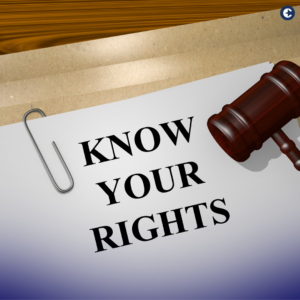In the dynamic landscape of the modern workplace, understanding employee rights is not just beneficial—it’s essential. These rights ensure a fair, safe, and equitable environment for all, empowering individuals to navigate their careers with confidence. Let’s dive into the comprehensive list of employee rights that lay the foundation for a respectful and productive work culture.
Main paragraphs:
1. Right to a Safe and Healthy Workplace
- Employees are entitled to a work environment free from hazardous conditions, harmful substances, and potential safety threats. Regulations by organizations like OSHA (Occupational Safety and Health Administration) in the U.S. enforce these standards, ensuring that employers adhere to safety protocols and health guidelines.
2. Right to Non-Discrimination
- The workplace must be free from discrimination based on race, color, religion, sex, national origin, age, disability, or genetic information. Laws such as the Civil Rights Act and the Americans with Disabilities Act prohibit discrimination in hiring, promotion, job assignments, termination, and compensation.
3. Right to Fair Compensation
- Employees have the right to be paid fairly for their work, which includes receiving at least the minimum wage and overtime pay for any hours worked beyond the standard workweek, as dictated by the Fair Labor Standards Act (FLSA) and similar laws globally.
4. Right to Privacy
- Even within the employment context, individuals have a right to privacy concerning personal possessions, lockers, mail, and private communications. Employers are limited in their ability to monitor phone calls, emails, and internet usage.
5. Right to Freedom from Harassment
- A workplace free from harassment, whether sexual, physical, or psychological, is a fundamental employee right. Employers are required to take immediate and appropriate action to investigate and address harassment claims.
6. Right to Family and Medical Leave
- Eligible employees are entitled to take unpaid, job-protected leave for specified family and medical reasons, with the continuation of group health insurance coverage, under the Family and Medical Leave Act (FMLA) in the U.S. and similar laws in other countries.
7. Right to Join or Form a Union
- Workers have the right to organize, join unions, bargain collectively, and engage in collective labor actions, such as strikes, without fear of retaliation or discrimination.
8. Right to a Fair Process for Grievances
- Employees should have access to a transparent process for voicing grievances and disputes related to their employment, including issues related to workload, working conditions, or conflicts with colleagues.

9. Right to Work-Life Balance
- Increasingly recognized globally, this right encompasses reasonable working hours, rest breaks during the workday, and paid vacation time, allowing employees to balance their professional and personal lives.
10. Right to Protection from Retaliation
- Employees are protected from retaliation for exercising their rights, whether it’s filing a complaint, participating in an investigation, or reporting violations of laws. Protection from retaliation encourages a culture of openness and accountability.
Read More: How Does HR Influence Employee Rights and Laws?
Conclusion: Understanding and exercising employee rights is crucial for fostering a positive and productive work environment. Whether you’re an employer looking to ensure compliance and promote fairness, or an employee seeking to advocate for your rights, knowledge is power. By championing these fundamental rights, we can collectively contribute to a more equitable and respectful workplace.



